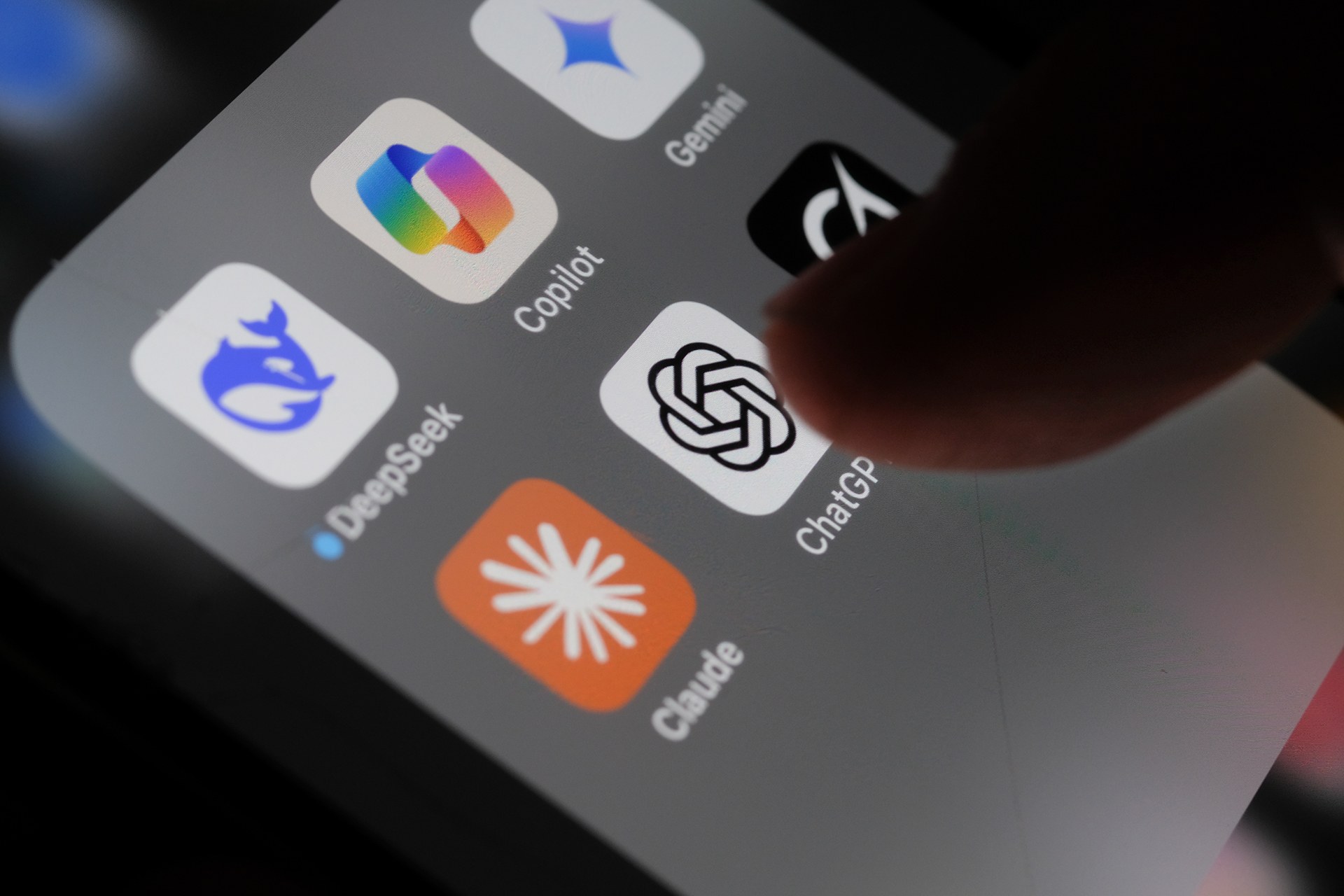The fear: Wholesale cheating with AI at work, school. The reality: It’s complicated.
The fear: Wholesale cheating with AI at work, school. The reality: It’s complicated.
ChatGPT usage appears ‘more wholesome and practical’ than researchers expected

By and large, it appears school and work assignments are not being outsourced entirely to ChatGPT. A new working paper by David Deming, Danoff Dean of Harvard College, uncovers the more mundane realities of people’s AI habits.
“It’s more wholesome and practical than I expected,” said Deming, a labor economist who also serves as Harvard Kennedy School’s Isabelle and Scott Black Professor of Political Economy. “I think that’s a good story. But it’s probably a disappointment if you think this thing is taking over the world. It’s also not a very good story for those predicting huge productivity gains.”
Deming’s large-scale study, co-authored with in-house economists at OpenAI, explores both the who and the how of ChatGPT usage worldwide. Key findings show rapid uptake has eased or even erased demographic gaps related to geography and gender. A separate set of analyses drew on a huge sample of anonymized messages to more accurately situate the technology’s everyday role as a researcher and gut-check.
“People have found that it’s great to have an assistant, an adviser, and a guide,” Deming said. “Sure, you can use it to automate things, but the prompting is important, and you really have to go back and forth with it. Whereas there’s very low friction in just asking it for advice or feedback.”

Deming, who remains bullish on college graduates’ career prospects in the 21st century, recently published two high-profile inquiries into AI adoption and labor market disruptions. He was presenting his research last spring at the Bay Area headquarters of OpenAI, the artificial intelligence company that developed ChatGPT, when Ronnie Chatterjee, the firm’s chief economist, proposed partnering on a third study based on internal data.
This was before Deming was announced as dean of Harvard College.
“A couple months into the project, I said to the team, ‘I decided to take on this new job. But don’t worry. I’m still committed to the paper,’” he recalled with a laugh.
Their findings show ChatGPT outpacing Google’s historic growth. As Deming noted in a recent Substack, it took Google eight years to reach 1 billion daily messages following its public debut in 1999. ChatGPT, released in November 2022, reached that milestone in less than two years.
As of July 2025, they find approximately 10 percent of the global adult population is using the technology, with adults ages 18 to 25 responsible for nearly half of the platform’s 2.6 billion daily messages.
“I knew young people would be heavier users,” offered Deming, noting the analysis excluded minors. “But the scale is surprising. It suggests this generation will be truly AI native.”
Deming et al. wondered whether the well-documented gender gap in ChatGPT adoption rates were closing with the product’s growth. They approached the question by studying whether users had traditionally masculine or feminine names, according to a variety of data sets including the Social Security Administration’s annual ranking of popular baby names for boys and girls.
In early 2023, just months after the ChatGPT product launch, the economists found roughly 80 percent of weekly active users had traditionally male names. As of July 2025, users with traditionally female names constituted just over half of all users.
“That crossover happened in the last few months,” Deming noted.
Also surprising was the fact that people in middle-income countries, including South Korea and Chile, are now adopting the technology faster than those in the wealthiest economies.
“There’s no longer a big difference in usage between people in Brazil and the U.S.,” Deming said.
“I knew young people would be heavier users. But the scale is surprising. It suggests this generation will be truly AI native.”
Other findings concern how people are using the technology and how usage varies across demographics. This part of the research, completed with careful attention to protecting user privacy, meant developing a taxonomy for various kinds of ChatGPT prompts.
The job of categorizing nearly 1 million messages, sent between May 2024 and June 2025, ultimately fell to — what else? — ChatGPT-5.
“We asked the large language model whether each message was work-related — or whether it was asking for tutoring or teaching, whether it was asking about what products to buy, whether it was asking for personal advice,” Deming explained.
As of June 2024, the data show an even split between work and personal messages. A year later, personal usage had far outpaced anything work-related — especially among young adults — and accounted for nearly three-quarters of all messages sent via ChatGPT’s consumer plans.
To verify the accuracy of this research method, results were compared with classifications made by humans. Additional tests showed the technology accurately categorizing submissions drawn from WildChat, a public database of voluntarily submitted ChatGPT messages.
Roughly 80 percent of messages fell into three categories. Those categorized as “seeking information” grew from 14 to 24 percent between July 2024 and July 2025.
“This is basically the same thing as Google search,” Deming said. “But it’s maybe a little bit easier since you don’t need to scroll through a bunch of websites. It just gives you the answer.”
“The way people are using it is so general that it applies to every job. It makes me even more skeptical of the narrative that AI is replacing entry-level positions.”
Another popular category called “practical guidance” held steady, totaling roughly 29 percent of messages over the same period.
“These messages are a little more customized,” Deming explained. “It could be something like: ‘I’m a 65-year-old who hurt my left hamstring. Give me some stretches to do.’
“And if you don’t like the answer,” he added, “you can just say so. You’re having a conversation with the chatbot that is adaptive to your request. That’s something a traditional web search just can’t do.”
“Writing,” the top use for work-related messages, fell from 36 to 24 percent of messages over the period studied.
“Actually, most of the ‘writing’ usage isn’t just writing,” Deming clarified. “It’s summarizing documents, critiquing op-eds, cutting 1,000 words down to 800, or translating a text into Farsi.”
Work-related messages, far more common with educated users in highly paid professions, were subjected to additional scrutiny. These inputs were specifically mapped to work activities listed in the U.S. Department of Labor-sponsored Occupational Information Network (O*NET) database, with “documenting/recording information” and “making decisions and solving problems” emerging as top messaging categories by users in nearly every occupation.
As Deming tells it, white-collar professionals across industries are applying ChatGPT to a similar set of tasks.
“If you look at educators, the top use case isn’t a category called ‘training and teaching others,’” he said. “It’s ‘documenting/recording information.’ And for sales occupations, the top task isn’t ‘selling or influencing others.’ It’s ‘making decisions and solving problems.’
“The way people are using it is so general that it applies to every job,” concluded Deming, who’s working with a different set of colleagues to launch an AI tracker, with regular servings of data-backed insights on usage and labor market impacts in the U.S. “It makes me even more skeptical of the narrative that AI is replacing entry-level positions.”
Latest Harvard
- Time for mandatory retirement ages for lawmakers, judges, presidents?Americans seem to mostly say yes; legal, medical scholars point to complexities of setting limits
- In dogs, as in humans, a harsh past might bare its teethEarly adversity leads to higher aggression and fearfulness in adult canines, study says
- Brief bursts of wisdomAphorism lover and historian James Geary reflects on how ancient literary art form fits into age of social media
- Flew home as Will Flintoft, returned as Rhodes ScholarApplied math concentrator to study computer science, theology with eye toward AI
- What will AI mean for humanity?Scholars from range of disciplines see red flags, possibilities ahead
- Tai Tsun Wu, 90Memorial Minute — Faculty of Arts and Sciences






